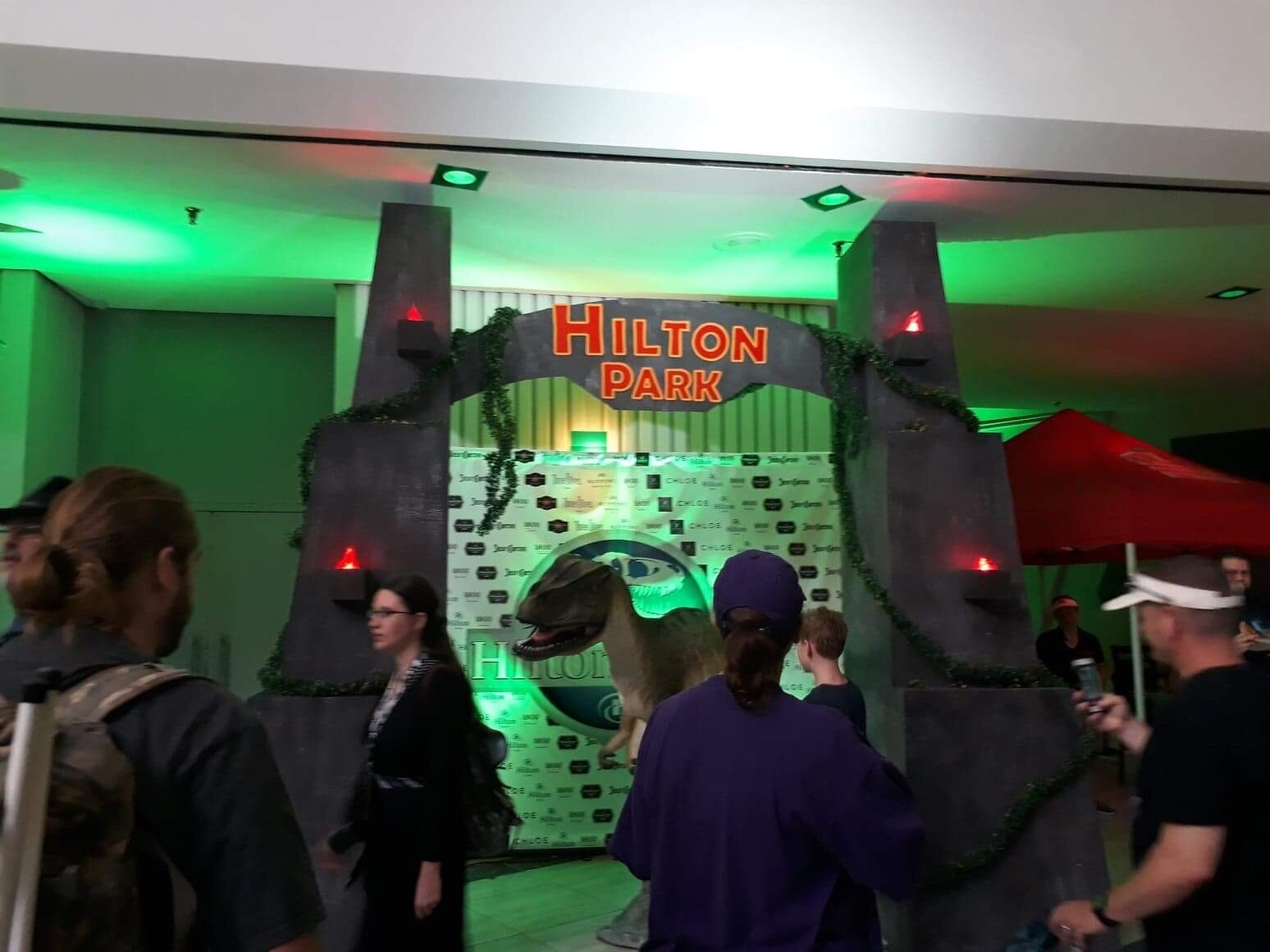Conventions: An Anthropologist’s Dream
The textbook definition of a convention is that of a meeting between a group of a people with a common goal or interest. The most common and widely known of these are centered around professions or fandoms. Some of them are small scale and local events while others have reached international fame. The San Diego Comic Con is one such example of an internationally renowned fandom convention.
Another one of these is based in Georgia, USA. DragonCon is a fandom convention that is considered to be a multi-genre convention. It originally started off in the 1980s as the project of a local gaming and science fiction. Since then, it’s grown to boast over 80,000 yearly attendees on average. The yearly event is spread across four days and has a variety of panels, workshops, and tournaments scheduled for its attendees.
One such attendee is anthropologist Michela Guilfoyle and for her, conventions are the ultimate people watching dream.
Michela Guilfoyle at DragonCon 2017 with a Peggy Carter cosplayer. (Photo courtesy of Michela Guilfoyle.)
“As an anthropologist, I love cons because they are a unique multicultural, layered experience.”
A life long fan of comics, attending DragonCon 2017 (and later conventions) was a dream come true for Michela Guilfoyle. It wasn’t just the overall friendliness and excitement from attending a convention with a great line up, but for the ability to meet so many different people all brought together by DragonCon.
A shared interest can bind together people who, otherwise, would have never met and been able to bond together. Which, is the entire philosophy behind the idea of conventions, be they Mermaid Con or the New York Pitch Conference.
It’s these created bonds, these shared interests, that draw Michela Guilfoyle’s attentions. As an anthropologist, it can be said that she is a professional people watcher. It’s at a convention that she can see and encounter hundreds, if not thousands, of people in a day and watch them interact with each other in ways that wouldn’t happen in her day to day life.
Cosplayers, comic lovers, authors and creators all intermingle together to celebrated a shared interest. At least in the case of the more creative and fandom-related conventions. A close friend of Michela Guilfoyle, artist and panelist Alexis Johnson, considers fandom-related conventions to be “a really lovely change of pace that doesn’t happen too often in daily life.” She points out a similar viewpoint to Michela Guilfoyle’s, that there is a different norm when attending conventions and meeting strangers who all share a common interest.
Alexis Johnson goes on to add that conventions have been becoming far more diverse over the years, where she’s seen “people able to experiment with gender and express themselves through cosplay.” In the past, fandom conventions have primarily become the domain of white men; contrary to the origins of the fandom world itself.
“Just like modern society, Comic Con reflects a diverse range of people who attend with an intersectionality of race, class, gender, etc...”
Michela Guilfoyle posing with a replica TARDIS from Doctor Who at DragonCon 2017. (Photo courtesy of Michela Guilfoyle.)
“It’s a microcosm of modern Western society, a crossroads of many faiths, cultures and communities.”
A majority of conventions were cancelled in 2020 due to COVID-19. Some conventions powered through the pandemic by switching towards hosting the conventions virtually (others outright cancelled and/or postponed indefinitely). Switching over to a virtual platform was labelled by industry as a catastrophe by some industry critics. A virtual convention doesn’t hold the same shock and awe value as an in-person convention, but it was still a new experience for fans throughout a bleak year.




Conventions have begun to open up throughout 2021 while some remain scheduled as virtual conventions due to safety concerns and budget constraints. Even so, virtual conventions have a leg up on the more traditional form of conventions due to accessibility. Guests can now attend from anywhere in the world without worrying about hotel and flight prices.
It’s an evolution that Michela Guilfoyle thinks would have happened either way, it was simply spurred on faster due to COVID-19. While she is excited about conventions opening up again, both physical and virtual ones, she holds a few reservations about safety.


